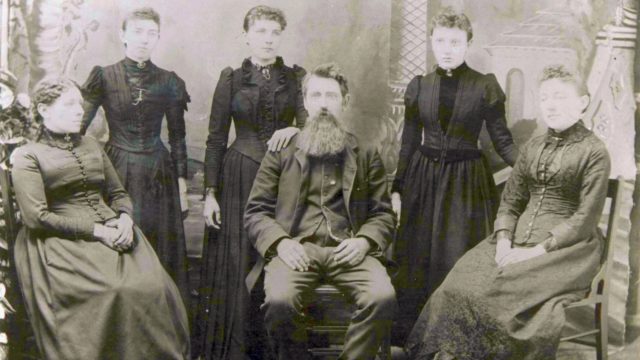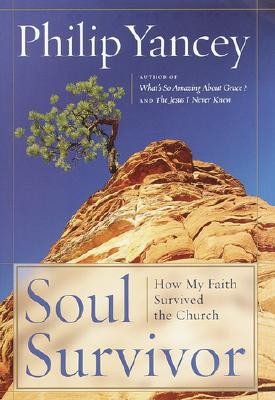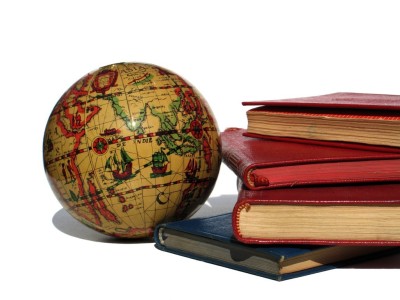Pioneer Girl
 So you feel like you’ve lived an interesting life, maybe a life that illustrates one of the archetypal American themes — Manifest Destiny, for example. How do you go about writing your life story for public consumption?
So you feel like you’ve lived an interesting life, maybe a life that illustrates one of the archetypal American themes — Manifest Destiny, for example. How do you go about writing your life story for public consumption?
For Laura Ingalls Wilder, the process involved writing a long, seamless, sequential narrative to her writer daughter, Rose Wilder Lane — complete with personal notes (“You remember the dress…”) and directions indicating an awareness of a public audience that might one day read her story. Some passages are boxed with strict instructions to keep them secret. Others seem to dwell excessively on mundane details while racing right over more intriguing fare that’s left undeveloped.
The contrast in content between this heavily annotated draft and the famed Little House books for young readers didn’t catch me altogether by surprise. Some of the details of Laura Ingalls Wilder’s life outside the books were familiar to me from Miller’s Becoming Laura Ingalls Wilder. I knew about the little Ingalls brother who died, the rather depressed chapter of the family’s life spent in Iowa, the fact that the Ingallses were in Indian territory illegally. And some of the rougher experiences of pioneer life were apparent already from the books, even though they aren’t dwelt on: tornadoes and blizzards that take lives, a wife who threatens her husband with a butcher knife, alcoholism, and racism.
But more of these details are provided in Pioneer Girl, written matter-of-factly, with only occasional passages of the description Laura’s character develops in the novels as Mary’s “eyes.” Pioneer Girl gives us glimpses of domestic violence, drunkenness, even one episode where a very young Laura is nearly molested.
Even the Ingalls family comes out looking a little less saintly. Pa skips town with the family without paying rent; they show little concern for laws or treaties in their attitude toward the west (despite Pa’s stint as justice of the peace on Silver Lake); even their care of Laura seems somewhat lax in the way they send her to stay with others as a companion, even as a child. Mary comes across more realistically, less perfect than in the novels (though even in them we see her bossiness and, at times, narcissism). Laura herself is every bit as feisty and determined as in the stories — and then some. Sometimes she comes across as manipulative and overbearing. But in the essentials of resourcefulness, faithfulness to one another, neighborliness, and civic duty, the family remains consistent with their fictional counterparts.
There are plenty of surprises in details — the sequencing of the family’s travels westward, for instance. Characters are sometimes compilations of real people. In some matters, Wilder’s memory is simply unreliable, as the annotations point out by reporting on the degree of correspondence between Wilder’s memory and historical fact. All of this raises interesting questions about the process by which life is converted into fiction — or even into autobiography. When I mentioned to my daughters that Jack the brindle bulldog was actually traded away with Pet and Patty, they felt betrayed — as though Laura Ingalls Wilder had deliberately lied to them! But the Little House books are fiction. We know this — yet we develop such an attachment to the cast of characters that it’s difficult to accept the ways the books differ from reality.
The books, Wilder said, were not pure history — but they were true. Truth vs. accuracy. Certainly one dimension of the stories’ truth that came through to me as I read Pioneer Girl was Laura’s feeling as she sits with Almanzo on the doorstep of their home on the night of her marriage and feels grateful that she will never have to live among strangers again. She has a place of her own. There is a sense of danger and insecurity emanating from Pioneer Girl that I never felt in the Little House books. Its release to a public audience after all these years supplies a fascinating and necessary context to the series.
Other posts on Laura Ingalls Wilder:
- Becoming Laura Ingalls Wilder (Book review)
- Random Thoughts on the Little House Books (Musings on the series)
- Caddie Woodlawn (A book review with a comparison between Caddie Woodlawn and Laura Ingalls)
- The Wilder Life (Book review)
- A Little House Traveler (Book review)



6 Comments
Ruth
So interesting!
bekahcubed
Every review I read makes me more and more eager to read this. Your teasers have me tempted to BUY it (which I never do without reading a book first.)
Janet
I would like to buy it myself, Bekah. It’s not cheap, and I think this print run may be sold out already — or close to it. But every page is about half text and half notes. I started out reading all the notes but soon despaired of doing so before it was due back at the library — I’m sure it has a long string of holds on it! I ended up reading the notes selectively and missed a good many.
Barbara H.
I used a Christmas gift card to Amazon to get this but had to wait for a second printing and just got it a week or so ago. I hadn’t realized how big it was going to be. I am looking forward to reading it but don’t know when I’ll get to it.
Barbara H.
Loved the thought of the security of knowing she’d never have to live among strangers again. Though they seemed to take their multiple moves in stride (Ma seems to have had the hardest time in the books), it had to have been hard to be uprooted so often.
Janet
I went right over to your blog when I finished this, Barbara — looking to see what your thoughts might be. :-) I’ll look forward to it!